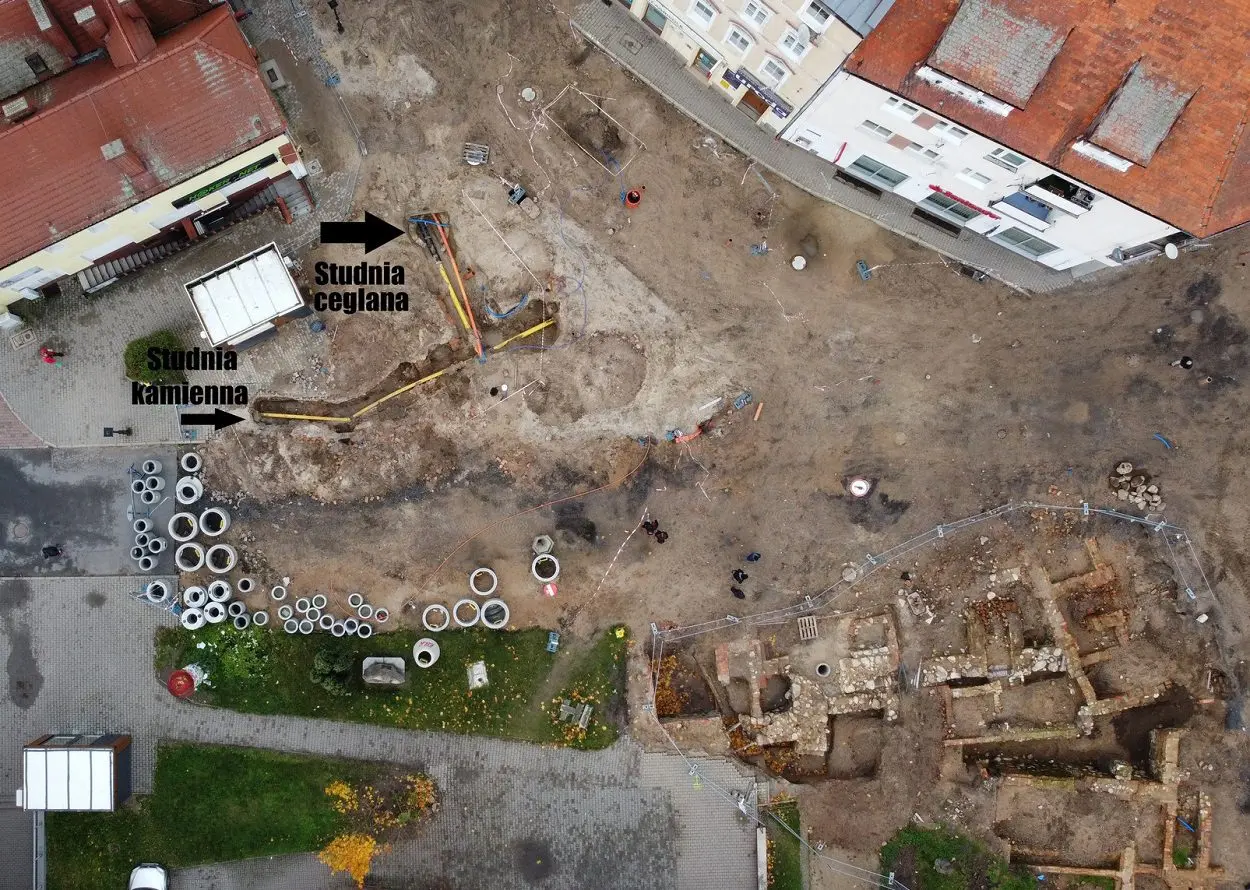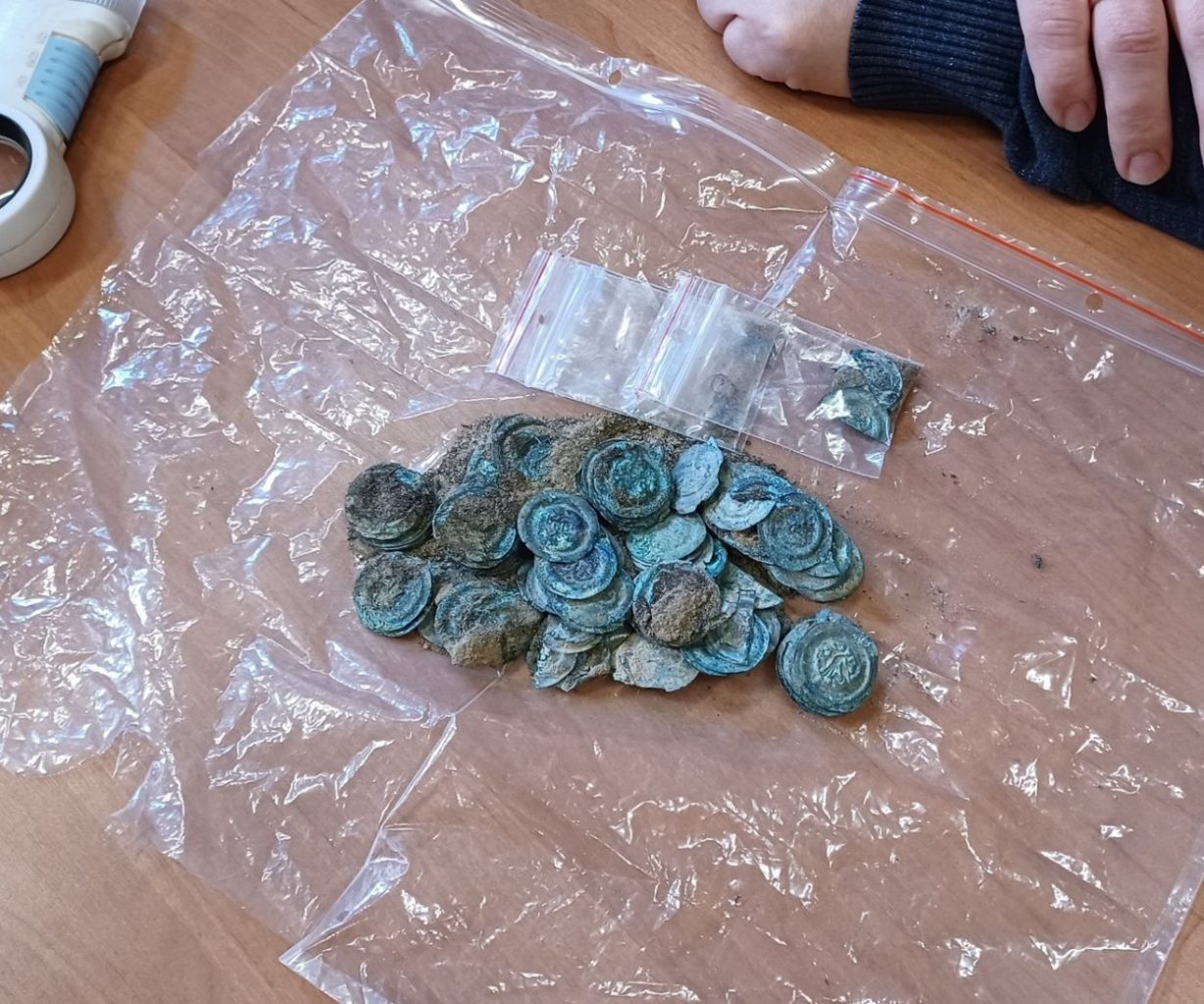Archaeologists conducting excavations in the area of a former burgage plot in Szprotawa, Poland, have uncovered a treasure hoard of around 100 to 150 Silesian bracteate coins.
A burgage was a town rental property “burgage tenement”, consisting of a house on a long and narrow plot of land with a narrow street frontage. Excavations unearthed the remains of a textile bag containing neatly arranged coins in cylinder piles.
A closer examination has identified that the coins are mainly Silesian bracteates (Latin: “bractea” – plate) minted between 1250 to 1300. The coins are minted on one side from a thin plate on a soft base, which were introduced in Silesia after 1250 and phased out by thicker coins (the quarterly) during the early 14th century.
They originate from the mint workshops of Silesia, although their use was relatively short as the coins were usually called back regularly (about once or twice a year) to be exchanged for new coins.

In receiving three new coins for four old coins, the withheld 4th coin was called strike money and was often the only tax revenue of the coin mint-master. This system worked like a demurrage, with people often hoarding their coins because they lost their value.
According to Radosław Kuźbik: “In the case of cash deposits, the inevitable question is who concealed it, when and why. Specialists will want to answer this question in the near future. We can assume that it was so-called petty cash belonging to a rather wealthy person.”
The coins have been described as one of the most significant discoveries in the region, as very few coins of this type survive from the period as they were melted down on an ongoing basis.
Excavations also discovered evidence of a bridge from the 15th to 16th century and the remains of the original city walls built during the 14th century.
Header Image Credit : Lubuski Wojewódzki Konserwator Zabytków





